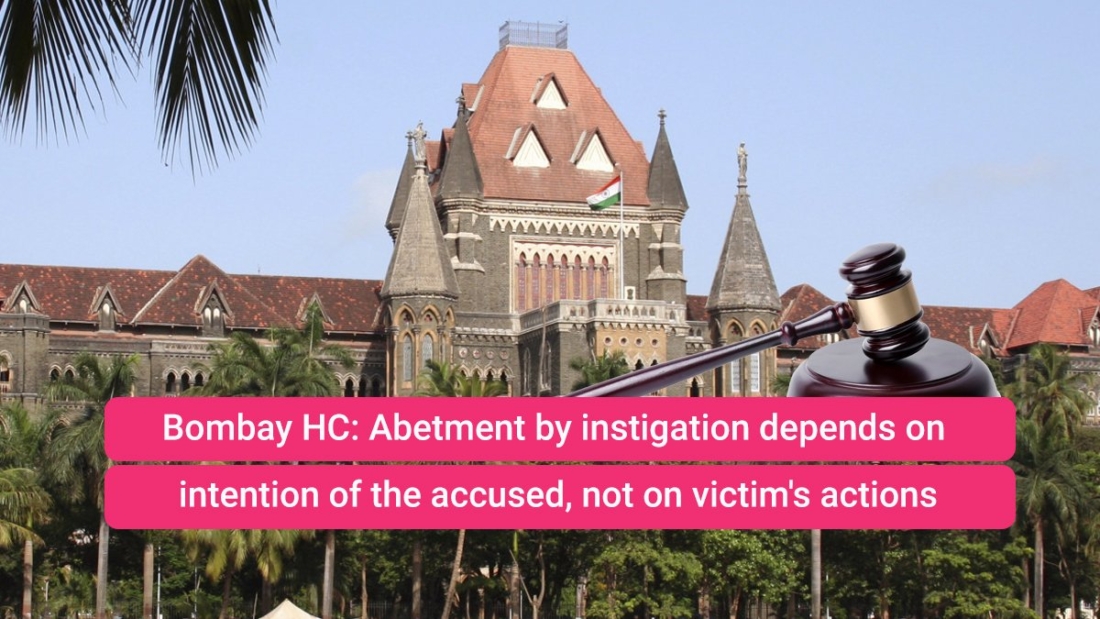In the matter of Gaurav v. State of Maharashtra; the Bombay High Court on 1.09.2021 observed that we, as a society, have failed to create an environment where primary caregivers can identify signs of abuse. Justice Bharati Dangre rejected a man’s bail application for allegedly abetting his 17-year-old niece’s suicide.
A young girl aged 17 years jumped from the balcony of a flat and succumbed to injuries. After a span of 96 days of the said incident, mother of the girl lodged a complaint against the Applicant attributing to him that he had abetted the commission of the suicide.
In the year 2018, the victim had stayed at Applicant’s house in Aurangabad. During this time, the Applicant allegedly sexually abused the girl and later continued to send her offensive and vulgar messages. After her death, the police recovered the messages from the victim’s phone and also a chit written by the victim to her mother.
The Applicant was arrested and booked under Sections 306 (Abetment of suicide), 354A (Sexual harassment and punishment for sexual harassment), 354-B (use of criminal force to woman with intent to disrobe) of the Indian Penal Code, 1860 and Section 4 (Punishment for Penetrative Sexual Assault )and 8 (Punishment for Sexual Assault) of the Protection of Children from Sexual Offences Act, 2012 (“POCSO Act”)
Counsel for the accused contented that even if it’s assumed for a moment that the Applicant had committed “an error” in texting the girl and “crossed limits”, he can be said to have committed a “moral blunder”. “The extreme step taken by the deceased was not the only solution left to her, as there were other ways of sorting out the issue.
Observations of the Court:
- Justice Dangre, referring to a note received from the girl remarked that: “She is a girl in formative years and her writing give the impression that she felt trapped… The screenshots from the mobile make it apparent that the applicant was harassing the deceased and in spite of her strong protest, was seeking something from her, leaving her in a despondent state.”
- The court noted that while it is true that for abetment of suicide direct instigation has to be there but in particular cases, instigation has to be gathered from the circumstances and a straight jacket formula cannot be adopted.
- The offence of abetment by instigation depends upon the intention of the person who abets and not upon the act which is done by the person who was abetted.
- The Court further said that the present case is of a young teenage girl, who felt cornered by the conduct and demeanour of her own uncle, which was unexpected since she held him on a high pedestal as her own father and was unable to vent her anguish on account of the close proximity of the family with that of the Applicant.
- Noting that the girl suffered the consequences of her uncle’s conduct “silently” for a year or so, the HC remarked that, “Sexual violence knows no boundaries. For the deceased, who was not an adult, but a child, her adolescent years were shaped by harrowing experiences that left her with irreversible and irreparable memories. The fear of stigma, not being believed and being blamed, found her in a precarious situation, left her isolated and insecure and which persuaded her to end her life.”
While rejecting the bail of the Applicant, the Court made certain significant observations that, a child may be subjected to sexual abuse or exploitation at home too. “Unfortunately, we have not been able to create an atmosphere in the Society where parents, teachers and adults in company of the child can identify signs of abuse and make sure children received care and protection.”
– Vaishali Jain, Advocate & Associate – Child Safety at Work
 Cart is empty
Cart is empty 

